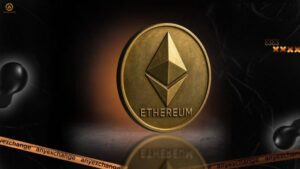Moloch DAO can refer to the DAO framework, a description of a DAO that uses the framework, or the name of the Ethereum grant-giving DAO that originally created the framework.
What Is Moloch DAO?
Moloch DAO Framework
Its primary features are:
-
Permissioned membership – new members are voted in by existing members
-
Weighted voting – members can have varying governance weights (in contrast to multisigs, where every member has a single vote)
-
Non-transferrable governance power – voting and economic rights are not liquid
-
Ragequit – members can exit some or all of their membership shares in return for a proportional amount of the assets in the DAO’s treasury
Moloch DAOs take actions in the form of proposals. Once submitted, a proposal must be sponsored by a member of the DAO. Once sponsored, the voting period begins, during which members vote on the proposal according to their shares. A proposal is passed if it receives more share votes in favor than in opposition; there is no quorum requirement.
If the proposal passes, it must go through a grace period before it can be executed. During this period, members who did not vote in favor of the proposal may Ragequit. This offers strong protection for minority members even without a quorum requirement.
Proposals can grant shares to new members (or additional shares to existing members), transfer assets from the DAO treasury to recipients. While proposals cannot interact directly with other smart contracts, Moloch DAOs can do so with the help of special helper smart contracts called Moloch Minions.
Stemming from these core features, Moloch DAOs have a number of important properties:
-
Strong minority member protection
-
Security
-
Highly decentralized and distributed power
-
Support for efficient coordination
Versions
Since its initial launch, the Moloch DAO framework has upgraded to Moloch V2, which enables a new layer of DAO capabilities including the ability for Moloch DAOs to acquire and spend different tokens (instead of just one). Moloch V2 also introduces the “Guild Kick” proposal type allowing members to collectively remove another member from the DAO (their assets are refunded in full). It also added loot shares, which represent economic exit rights without voting rights.
Moloch V3, which is expected to introduce new flexibility and extensibility to the framework, is currently in development.
The First Moloch DAO
Other Moloch DAO Examples
Since MolochDAO, many other DAOs have used the Moloch DAO framework. MetaCartel, Raid Guild, and Meta Gamma Delta are some of the prominent early adopters, and many more have since followed suit. Many of these DAOs can be found in the Explore section of the DAOhaus app.
Author: Collectively authored by DAOhaus
DAOhaus is the home for purpose-driven community DAOs and has grown from a 2019 hackathon project into a fully-fledged platform with +1,000 DAOs. DAOhaus enables users to add the capabilities of DAOs to their own projects without having to worry about the complexities of writing smart contracts or building dApps. You can launch a DAO via DAOhaus in a few clicks.




